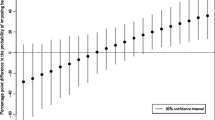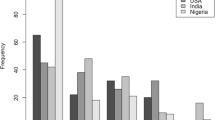Abstract
The Framework Convention on Tobacco Control (FCTC) marks a unique point in the history of global health governance. This convention produced the first legally binding treaty under the auspices of the World Health Organization. Another first was the extent to which non-governmental organizations (NGOs) participated in the negotiation process. This article explores the relationship between one group of NGOs and their respective government during the negotiation of the FCTC. Documentary analyses and 18 individual in-depth interviews were conducted with both government and NGO representatives. In contrast to the polar perspectives of idealism (NGOs as unique and autonomous) and realism (NGOs as funded arms of the government), our findings suggest that neither opposition nor conformity on the part of the NGOs characterize the relationship between the NGOs and government. While specific to the case under study (the FCTC), our findings nonetheless indicate the need for a nuanced view of the relationship between governments and NGOs, at least during the process of multilateral health policy negotiations.
Similar content being viewed by others
References
Roemer, R, Taylor, A.L. and Lariviere, J. (2005) Origins of the WHO framework convention on tobacco control. American Journal of Public Health 95: 936–938.
Lanord, C. (2002) A study of WHO's official relations system with nongovernmental organizations. WHO Civil Society Initiative, WHO/CSI/2002/WP4.
Holzscheiter, A. (2005) Discourse as capability: Non-state actors’ capital in global governance. Millenium Journal of International Studies 33 (3): 723–746.
Raustiala, K. (1997) States, NGOs, and international environmental politics. International Studies Quarterly 41: 719–740.
Kickbusch, I. (2000) The development of international health policies – Accountability intact? Social Science & Medicine 51: 979–989.
Josselin, D and Wallace, W. (2001) Non-state actors in world politics: A framework. In: D. Josselin and W. Wallace (eds.) Non-state Actors in World Politics. New York: Palgrave, pp. 1–20.
Mathews, J.T. (1997) Power shift. Foreign Affairs 76 (1): 50–66.
Jasanoff, S. (1997) NGOs and the environment: From knowledge to action. Third World Quarterly 18 (3): 579–594.
Weiss, T.G. (1999) International NGOs, global governance, and social policy in the UN system. In: T.G. Weiss (ed.) Occasional Papers on Global Social Policy. Helsinki, Finland: Stakes, pp. 1–25.
Betsill, M. (2002) Environmental NGOs meet the sovereign state: The Kyoto protocol negotiations on global climate change. Colorado Journal of International Environmental Law and Policy 13 (1): 49–64.
Albin, C. (1999) Can NGOs enhance the effectiveness of international negotiation? International Negotiations 4: 371–387.
Humphreys, D. (2004) Redefining the issues: NGO influence on international forest negotiations. Global Environmental Politics 4 (2): 51–74.
Gordenker, L and Weiss, T.G. (1996) Pluralizing global governance: Analytical approaches and dimensions. In: T.G. Weiss and L. Gordenker (eds.) NGOs, the UN, & Global Governance. Boulder, CO: Lynne Rienner Publishers, pp. 17–50.
Bob, C. (2002) Merchants of morality. Foreign Policy 129: 36–45.
Loewenson, R. (2003) Civil Society Influence on Global Health Policy. World Health Organization: Civil Society Initiative, April.
Akukwe, C. (1998) The growing influence of non-governmental organisations (NGOs) in international health: Challenges and opportunities. Journal of the Royal Society for Health 118 (2): 107–115.
Kamat, S. (2004) The privatization of public interest: Theorizing NGO discourse in a neoliberal era. Review of International Political Economy 11 (1): 155–176.
Nathan, S., Rotem, A. and Ritchie, J. (2002) Closing the gap: Building the capacity of non-governmental organizations as advocates for health equity. Health Promotion International 17 (1): 69–78.
Higgott, R.A, Underhill, G.R.D. and Bieler, A. (2000) Introduction: Globalisation and non-state actors. In: R.A. Higgott, G.R.D Underhill and A. Bieler (eds.) Non-state Actors and Authority in a Global System. New York: Routledge, pp. 1–13.
QSR International Pty Ltd. (2008) NVivo qualitative data analysis software: Version 8.
Yeates, N. (2002) Globalization and social policy: From global neoliberal hegemony to global political pluralism. Global Social Policy 2 (69): 69–91.
Wapner, P. (2002) Defending accountability in NGOs. Chicago Journal of International Law 3 (1): 197–205.
Archibugi, D. (2004) Cosmopolitan democracy and its critics: A review. European Journal of International Relations 10 (3): 437–473.
Mayhew, S. (2005) Hegemony, politics and ideology: The role of legislation in NGO-Government relations in Asia. Journal of Development Studies 41 (5): 27–758.
Labonté, R., Schrecker, T., Packer, C. and Runnels, V. (eds.) (2009) Globalization and Health: Pathways, Evidence and Policy. London: Routledge.
Author information
Authors and Affiliations
Corresponding author
Additional information
In the politics of public health issues – tobacco control, for example – governments and NGOs take advantage of each other's strengths to advance the cause. Here the Canadian experience is explored.
Rights and permissions
About this article
Cite this article
Lencucha, R., Labonté, R. & Rouse, M. Beyond idealism and realism: Canadian NGO/government relations during the negotiation of the FCTC. J Public Health Pol 31, 74–87 (2010). https://doi.org/10.1057/jphp.2009.48
Published:
Issue Date:
DOI: https://doi.org/10.1057/jphp.2009.48




